The best movies on Hulu right now
With romances like Portrait Of A Lady On Fire, anime classics like Akira, and an ever-increasing slate of horror, Hulu has something for everyone
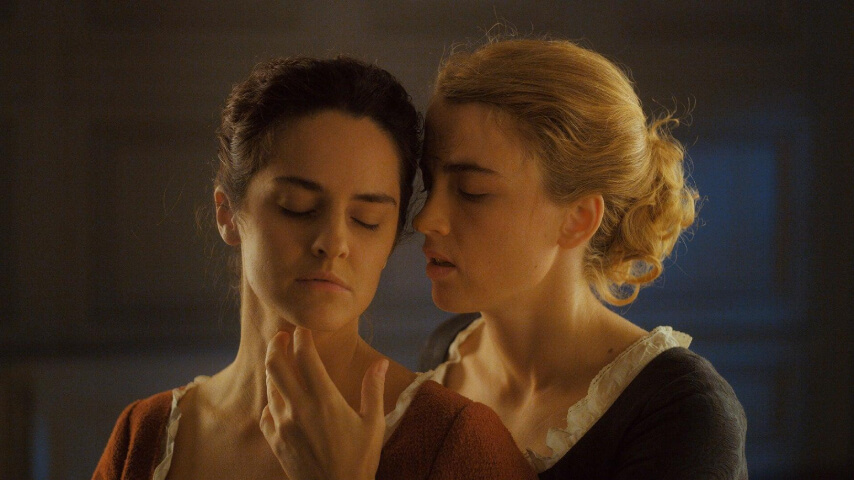
Hulu, like all streaming services, adds and loses titles every month. If you see something that you want to stream, don’t assume that it will still be there two weeks or two months later when you get around to it. That movie may hop over to another streaming service like Netflix or Amazon Prime for a few months, or it may disappear from streaming altogether for an indeterminate amount of time. The lesson here? Stream ‘em while they’re hot. Our list of the best movies on Hulu includes the cream of this rotating crop, which usually includes the best picks from Neon’s release schedule and Searchlight Pictures, now that it’s been fully gobbled up by the Disney machine. But within the flood of not-so-good Originals and recent releases, there are horror gems, international dramas, and plenty of comedy. And, setting Hulu apart from some other services, you can even find a few movies released before the 1990s. Read on for Hulu’s best movies, and The A.V. Club’s thoughts on each.
This list was updated on December 1, 2025.
Andrew Haigh is a master storyteller of love stories, both about budding connections (Weekend) and lifetime marriages falling apart (45 Years). He’s also one of the best contemporary chroniclers of gay lives (Weekend, HBO’s Looking). In All Of Us Strangers, he combines these elements to arrive at a story even richer than what he has done before. This is a film about a new and exciting love tinged with sadness, and it’s also about how to reconcile unresolved feelings between parents and their adult children. It’s a film about first and last chances at love, redemption, and healing wounds. All Of Us Strangers tells how continuing relationships—those that last a lifetime—can bring so much joy because of the strong connections they engender, yet also bring so much sorrow because of the expectations they come with. [Murtada Elfadl]
In spite of its increasingly daring and experimental visual stylings, the Japanese animation industry has yet to produce a film that truly rivals Katsuhiro Otomo’s much-heralded animated film adaptation of his 2,000-page comic book Akira. The 1988 cyberpunk extravaganza—in which a weak, put-upon biker punk named Tetsuo is suddenly endowed with phenomenal psychic powers, and uses them to exact violent retribution on any and all perceived authority figures—certainly has its problems. Its script is crowded, rushed, and occasionally opaque; screenwriters Otomo and Izo Hashimoto tried to cram a sampling of the political and social complexities of the manga series into the film, with uneven results. While the central tragic conceits of Japan’s familiar man-vs.-machine conflict are lucid enough, as is the more universal coming-of-age story, the motivations behind many of the bit players are far from clear. But the imagery remains incomparable among animated films. Akira is a landmark production that can be watched with equal satisfaction as a metaphorical psychodrama or as a sheer visual spectacular. [Tasha Robinson]
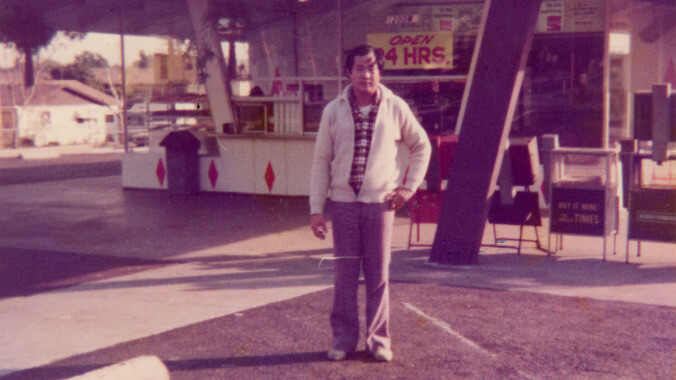
As an energetic montage at the beginning of The Donut King states, Los Angeles has a much higher percentage of donut shops than any other city in the U.S.—one for every 7,000 residents, as opposed to the national average of one per 30,000. And almost all of those donut shops are owned by Cambodian people, whose market dominance is so complete that even East Coast staple Dunkin’ Donuts struggled to break into Southern California in the ’90s. Remarkably—almost miraculously—this is all the work of one man: Ted Ngoy, who sponsored hundreds of refugees to come to the U.S. and gave them turnkey loans to run their own donut shops in the ’70s and ’80s. The first part of Gu’s documentary celebrates Ngoy, as well as the ingenuity and tireless work ethic of immigrants in general, with a vivid hybrid of biographical documentary and food porn set to colorful animation and a hip-hop beat. In fact, The Donut King plays much like an extended episode of Ugly Delicious, before diving into darker territory in its second half that actively dismantles the myths it spent the first hour building. And although this abrupt turn destabilizes the film’s structure in a way it never quite recovers from, it also makes The Donut King much more than simple food porn—not that there’s anything wrong with that, particularly when creative, mouthwatering treats like cronuts and emoji donuts are so lovingly showcased. [Katie Rife]
The Equalizer 2, which reunites Washington with Equalizer 1 director Antoine Fuqua and screenwriter Richard Wenk, puts fewer disposable goons in Robert McCall’s crosshairs, trading the original’s rote killing-up-the-ranks revenge campaign for some half-assed approximation of a murder mystery. Having left his day job at the Home Depot that got shot to smithereens at the end of the last movie, McCall now drives for Lyft, scanning for trouble—for those in need of some street justice or protection—in his rearview mirror. Early into The Equalizer 2, he makes short, brutal work of some rapist business bros, but not before politely giving them the chance to turn themselves in. (That’s the thing about Mr. Equalizer: He’s tough but fair, and a perfect gentleman, right up until the point he’s snapping your fingers like twigs.) Washington, who’s been playing stoic men of action almost as long as he’s been honing his actual acting chops, does bring a casual authority and even a touch of gravitas to his role. He has a way of slowing scenes down, of savoring the better-think-twice monologues and loaded advice his character calmly delivers before Equalizing someone. [A.A. Dowd]
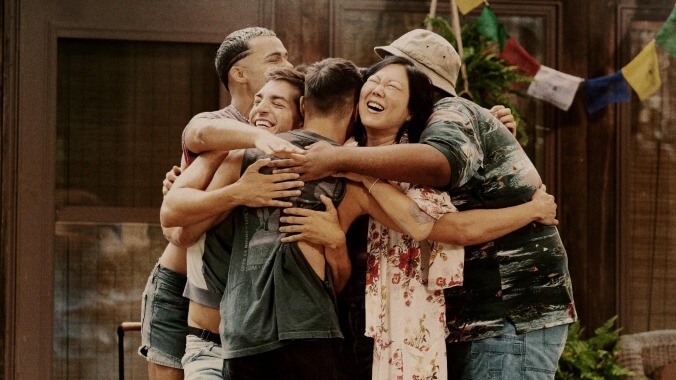
It doesn’t take long for Fire Island, Joel Kim Booster’s instant-classic Jane Austen riff, to stake its claim in the romantic comedy canon—or rather, defiantly outside of it. Less than a minute into the opening sequence, Booster refers to Pride And Prejudice, his source material, as “hetero nonsense.” As this story’s Lizzie Bennet stand-in, gay Brooklynite Noah continues to narrate: he shudders at the “boyfriend energy” of the naked man in his bed whose name clearly eludes him, then calls his chosen family, the group of friends on their annual Fire Island vacation, the F-word (the one reserved for gays). “Don’t cancel me,” he tells us, tongue firmly in cheek. “I’m reclaiming it!” Suffice it to say this isn’t your typical rom-com—but then again, how could it be? With all due respect to But I’m A Cheerleader and rather less respect to Love, Simon, queer audiences haven’t seen themselves reflected much in a genre that, at least in its heyday, defined Hollywood’s mainstream and reinforced heteronormative sociocultural standards. Booster and director Andrew Ahn use Austen’s tale of class tension, a romantic comedy urtext, to laugh in the face of such standards, and introduce some new ones. Queer and straight viewers alike may experience Fire Island on Hulu with a mix of delight and disorientation; they haven’t worked the muscles of watching a gay will-they-won’t-they story, let alone one populated by unabashedly out characters. [Jack Smart]
Flamin’ Hot is about—you guessed it—the hugely popular Cheetos snacks that currently come a range of flavors. The film adaptation holds the viewer’s interest because of Jesse Garcia, who plays Richard, the unlikeliest of heroes. In the 1970s, before he becomes a custodian at Frito-Lay’s Rancho Cucamonga plant in Southern California, Richard peddles drugs and steals. Eventually he turns his life around and befriends the jaded Frito-Lay engineer, Clarence (Dennis Haysbert). Amid a series of layoffs and shift cuts, PepsiCo Chief Executive Roger Enrico (Tony Shalhoub) hosts a motivational video imploring plant employees to think like a CEO. Richard takes this message to heart, embarking on a quest to come up with the storied snack, then bypassing all the gatekeepers so he can pitch the idea to Enrico. Eva Longoria makes an assured big-screen directorial debut. Indeed, the finished product feels more like the effort of a film school wunderkind than some vanity project of an actress turned filmmaker. [Martin Tsai]
From the moment we meet Nancy Stokes, anxiously pacing around a tastefully anonymous hotel room, knocking back a minibar vodka and posing in the mirror to no great personal satisfaction, we can tell she’s a nervous wreck. And why shouldn’t she be? Nancy is a 55-year-old widow awaiting the arrival of a sex worker who’ll hopefully give her the first orgasm of her entire life. The male escort assigned to this monumental task is the “aesthetically perfect” young Leo (Daryl McCormack) and, as he’ll learn over the course of their four meetings, giving Nancy a chance to premiere her O-face means breaking down her well-established defenses. If that sounds like the premise for a comedy or even a tragedy, it’s actually neither. Good Luck To You, Leo Grande is a tender and richly satisfying charmer whose themes of self-acceptance and body positivity are delivered with a light and carefully crafted touch. Emma Thompson is at her prickly, vulnerable, fiercely intelligent best as Nancy, a stand-in for every woman who’s suppressed her sexuality out of shame, feelings of inadequacy or a need to please others. Unfolding almost entirely in one room, the film is a two-character study of sexual awakening and a heartfelt, yearning dispatch from the farthest corner of the age divide. It’s a sexually frank and intimate story told in a pleasingly mainstream manner that avoids greeting card clichés and empty “girl power” posturing. [Mark Keizer]
Raoul Peck’s docu-essay I Am Not Your Negro is narrated by Samuel L. Jackson, speaking in a voice so low and affected that he hardly sounds like himself. He doesn’t quite sound like James Baldwin either—or at least not like the mellifluous, twangy Baldwin seen in the old clips from talk shows and public affairs programs scattered throughout Peck’s film. Jackson sounds more like the author late at night, exhausted, half-whispering bitter truths into a tape recorder. I Am Not Your Negro could be considered one of the final statements from a great American writer, and it’s a sadly resigned one, summarizing centuries of overt and subtle racism and expressing a feeling of hopelessness. I Am Not Your Negro is based on a nonfiction assignment that Baldwin turned down in the late ’70s—after writing 30 pages framing what the project might’ve become, and explaining why he couldn’t bring himself to do it. Tentatively titled Remember This House, the book was meant to be a look back at the lives and deaths of Medgar Evers, Malcolm X, and Martin Luther King filtered through Baldwin’s own personal experiences with all three. But Peck’s film isn’t strictly an adaptation of an unfinished work, or even a backdoor bio-doc about three key figures from the ’50s and ’60s civil rights movement. By weaving in old speeches, pieces from other books, and even some visual juxtapositions that maybe only he fully understands, the director makes a persuasive, intuitive case for Baldwin as a poet and a prophet. When Baldwin sighs, “This country has not in its whole system of reality evolved any place for you,” the words hang in the air like a gloomy cloud, which will not dissipate until everyone sharing this space recognizes that they can’t see through it. [Noel Murray]
It sounds like the stuff of slumber parties, a cautionary tale to be whispered by flashlight or embellished over a flickering flame: Sleep with the wrong person, as the teenage heroine of It Follows does, and the nameless thing will come for you. On the outskirts of Detroit, Jay (Maika Monroe) finds herself the target of this relentless, shape-shifting entity—a curse passed on through sex with Hugh (Jake Weary), her handsome but mysterious new squeeze. There’s a primal, ingenious simplicity to that setup, one that writer-director David Robert Mitchell mines for one enormous scare after another. But It Follows is more than just an expertly calibrated scream machine. Set in the teenage wasteland of an indeterminate era, where bored young adults watch rabbit-ear TVs while pawing at custom mobile devices, the film twists the itchy melancholia of coming-of-age cinema into something more fatalistic. Fans of early John Carpenter will immediately identify the master’s influence—on the voyeuristic slink of the camera, the synth pulse of Rich Vreeland’s throwback score, and the transformation of “safe,” warmly lit residential environments into landscapes of dread. But It Follows is no knockoff. Throughout, Mitchell spikes his formally masterful horror with thick dollops of sexual anxiety. But as tempting as it might be to read the “it” of the title as a kind of walking STD, Mitchell hasn’t delivered the world’s spookiest health-class lecture. The metaphor is looser and more mythic: Jay and her friends are haunted by the slipping away of their carefree adolescence, day by uneventful day. [A.A. Dowd]
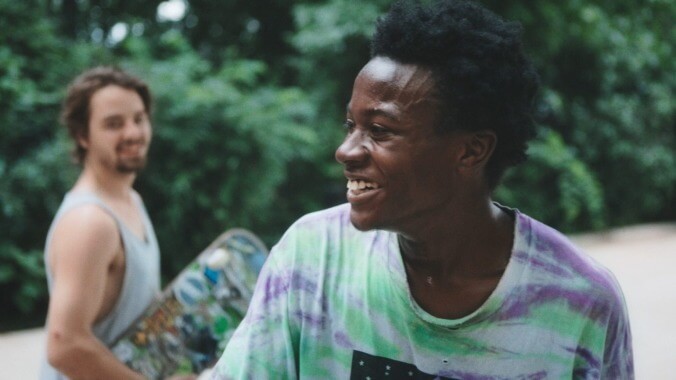
From the house that fronted Hoop Dreams comes another absorbing, heartbreaking documentary about coming of age on the economic fringe of the American Midwest. It’s boards, not basketball, that the young subjects of Minding The Gap looked to as an escape hatch, back when they were teenagers delivering themselves, an afternoon at a time, from the shared trauma of their home lives. Bing Liu, the director, was one of them, a budding filmmaker shooting skating videos with his friends. Returning to his old stomping grounds of Rockford, Illinois, he catches up with these childhood companions, still haunted by the abuse they experienced as kids, which has shaped their adulthoods in ways both obvious and not. As usual, the Kartemquin long-term filming model pays enormous dramatic dividends. But Liu is just as interested in where these real lives have been as where they’re headed, because the two are intimately related—just one profound takeaway from his multifaceted portrait of boys growing into men, trying to outpace their demons along the way. [A.A. Dowd]
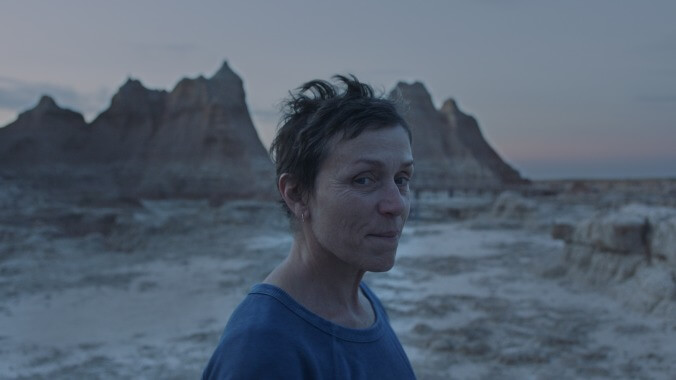
Unless the political landscape changes significantly over the next few years, the number of Americans facing an old age like the one profiled in Nomadland will only continue to grow. A longtime resident of Empire, Nevada, Fern (Frances McDormand) watched her town shrivel up and die after the gypsum mine that employed the majority of the community shut down in January 2011. A dandelion seed left to float on the fickle winds of capitalism, Fern now lives in a custom van she calls “Vanguard,” traveling in search of temporary employment and a safe place to park overnight. In the winter, she packs boxes at an Amazon warehouse; in the summer, she fries burgers and cleans toilets at tourist attractions. Her pleasures are simple, her struggles immense. Her hair is short, her shoes sensible. She keeps moving so she doesn’t dwell on the past for long. In different hands, Fern’s story might be tragic. But while Nomadland director (and writer and editor and co-producer) Chloé Zhao is interested in the material realities of a sixtysomething widow living an itinerant lifestyle, she also brings a dignity to the film that verges on sublime. [A.A. Dowd]
What does the worst day of Peter Gibbons’ life look like? In Mike Judge’s Office Space, it looks conspicuously like your worst day, too: Idling for an hour in rush-hour traffic, outpaced by an old man with a walker; eight hours in a cubicle under the sickly glow of fluorescent lights; the boss (or eight bosses) hassling him over some meaningless bureaucratic addition to his already meaningless job; lunch breaks at some chain eatery, where an overeager waiter hard-sells “pizza shooters, shrimp poppers, and extreme fajitas;” and the million other petty annoyances, from bum printers and motivational banners (“What can you do for the company?”) to static shocks and mini-battles over office supplies. And at the end of the day, he returns to a one-bedroom apartment stocked with cheap Ikea furnishings and those horrible blinds where the slats clack together like wind chimes when you close them. There have been many portraits of cubicle culture before and after Office Space—The Office, Clockwatchers, Dilbert, and the early scenes of Joe Versus The Volcano immediately spring to mind—but none have laid out the parameters of this soul-sucking modern world quite so comprehensibly. But you know what else Mike Judge is really good at? The montage. With their wonderfully ironic use of gangsta rap and mambo, the montage sequences in Office Space slather slo-mo badassery worthy of Scarface into gags like the opening traffic jam, Peter’s dismantling of the workplace, or the whitest of white-collar criminality, like planting a virus or laying waste to a printer. Judge’s deceptively unadorned shooting style, which is more like deadpan with a camera, shouldn’t obscure the fact that he’s using the movies to enlarge the life of a painfully ordinary guy and and make it important. His universe is modest, but on that scale, his triumphs are epic. [Scott Tobias]
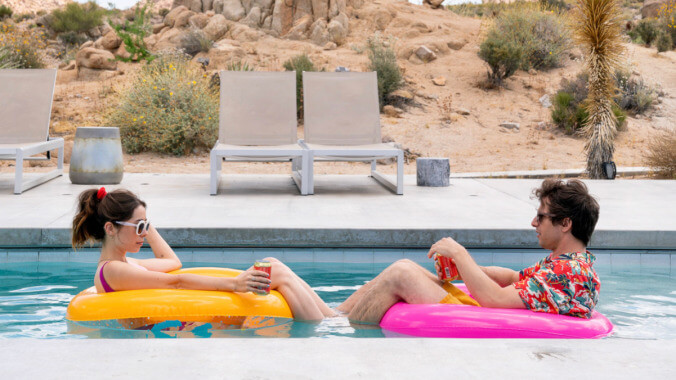
Andy Samberg stars as Nyles, a slacker doofus stuck at a destination wedding in Southern California, which he’s attending as the date of a bridesmaid. Blithely wandering the reception in a loud and very informal short-sleeve shirt, Nyles clearly doesn’t have any fucks to give. But he also seems to have a suspiciously premonitory sense of how the night will play out. And before long, Palm Springs reveals the reason for both: He’s stuck in a time warp, waking up every morning to find himself still in Palm Springs on the morning of the wedding. The film employs its magical conceit as a multi-purpose metaphor for a long-term relationship. The flip side, of course, is that monogamy can leave you feeling as stuck as the characters, living the same day over and over again, with only your significant other for company. But Palm Springs wears all that baggage lightly. It’s a sadly rare thing: a sweet, madly inventive, totally mainstream romantic comedy, buoyed by inspired jolts of comic violence (some of them provided by J.K. Simmons as another wedding guest with a very big bone to pick with Nyles). [A.A. Dowd]
In bare description, Pig sounds simple, straightforward, almost inevitable. How did Nicolas Cage get this many years into his long, eccentric career before finally taking on the role of an angry hermit pursuing the assholes who stole his beloved pet porker? Whatever form you might imagine such a movie would take, however, it’s not even remotely what Cage and fledgling writer-director Michael Sarnoski have in mind. From this superficially goofy, lowbrow premise, they’ve crafted a quasi-philosophical odyssey—one that, while not devoid of violence or humor, largely focuses on exploring the nature of creativity, passion, loss, and love. It’s at once ludicrous and deeply felt, anchored by a lead performance that balances manic intensity with uncharacteristic restraint in ideal proportion. Pig is aggressively allergic to spoon-feeding and hand-holding, content to let us speculate internally about who certain people are, why a lie gets told, exactly what robbed Rob (Cage) of his former existence. Like the animal itself, Pig is considerably smarter and more ardent than it appears at first glance, and unearths treasures that are barely evident on the surface level. [Mike D’Angelo]
Céline Sciamma’s Portrait Of A Lady On Fire, which has to be the most rapturously romantic movie of the year (if not of the last few), is a story of love at umpteenth sight. For two hours, the film’s characters—two women who meet on the edge of society and propriety—never stop studying each other, their eyes sweeping across candlelit rooms and windswept cliffs, the increasing intensity of their gaze and simmer of their passion melting the barriers between them. To fall for someone, the French filmmaker posits, is to really see them. And to see them requires time and attention—a process of discovery that only begins with that first look. What we’re watching is a seduction, mutual and very gradual, and the movie seduces its audience, too, drawing us in with the striking vividness of its imagery and the quiet patience of its storytelling. In Portrait Of A Lady On Fire, the subterfuge of the painter’s process is at once a metaphor and a catalyst for the inconvenient blossoming of infatuation: the private motives of stolen glimpses, wandering eyes acting on directive of the heart. Though not quite a two-hander, Portrait finds its drama in the intensifying, electrifying chemistry between its leads, unspoken until it finally isn’t. It’s only when the two become collaborators, when one becomes a willing subject, that they’re able to create something meaningful together. Portrait Of A Lady On Fire does just that, straight up to its all-timer of an ending, a supernova of feeling expressed and provoked. [A.A. Dowd]
A prequel to Predator, Prey is set in 1719, following Naru (Amber Midthunder), a young Comanche warrior who wants to break the gender traditions of her tribe and become a hunter. Already a skilled tracker and healer, Naru’s strength is put to the test when an unseen adversary endangers her tribe. Within this new setting, [Dan] Trachtenberg strips the Predator franchise back down to its core elements—the ruthlessness of this alien species and the ingenuity of humanity when confronted with nearly impossible odds. In concentrating on character and location, he backs off of the world-changing repercussions of the franchise’s immediate predecessors, creating an involving and tense character-driven experience whose strengths rely on narrative simplicity and a compelling lead in Midthunder. [Richard Newby]
Set in a tacky Hooters-style sports bar called Double Whammies, Andrew Bujalski’s delightful comedy Support The Girls more than lives up to its winking/earnest double entendre of a title. The film opens with an orientation session for new employees, who are instructed in the fine art of customer service: laughing at men’s dumb jokes, finding reasons to briefly touch their arms, and generally working the restaurant’s skimpy, bosom-centric uniforms. The movie isn’t self-righteously angry about this nonsense, though—just faintly exasperated. For Lisa (Regina Hall), the manager, Double Whammies is very much a job, complete with all the stress and frustration that accompany any position of authority. At the same time, she’s forged an emotional bond with each of the young women in her employ, creating the sort of makeshift work family that’s usually the province of long-running sitcoms rather than movies. Its rhythms are decidedly cinematic, particularly when it comes to ostensible punchlines being casually thrown away—spoken offscreen or stepped on by new visual information (which paradoxically makes the dialogue even funnier). Still, the film does play a bit like the fusion of a pilot and a series finale, introducing the ensemble and then engineering what turns out to be the final day of work for several characters. Apart from that vague trajectory, it’s mostly plotless, simply following Lisa around as she copes with an endless series of hassles, distractions, and emergencies. Hall’s superb, deeply felt performance keeps the movie grounded, allowing the supporting cast to provide hilarious liftoff at regular intervals. Support The Girls isn’t so much a feminist manifesto or anti-capitalist screed (though it includes elements of both, in its low-key way) as it is a wryly compassionate portrait of mundane lower-middle-class existence, emphasizing the value of solidarity while acknowledging that life never gets any easier for some people. [Mike D’Angelo]
It would be too lazy, even misguided to view Triangle Of Sadness—a beauty industry term that refers to one’s wrinkles between the eyebrows—as a straightforward “eat the rich” satire. Östlund’s genius lies in his stubborn refusal to be didactic, making sure that our sympathies continually shift throughout the narrative as its power structures evolve. Even so, one thing that stays constant is the feeling of antsy (yet oddly funny) discomfort, often amplified by incessant sounds like buzzing mosquitoes, crying babies, and screaming donkeys. It’s a stellar film that hits a rare sweet spot as both mainstream, accessible entertainment, and also an undeniably incisive piece of cultural commentary. And best of all, it will keep you on your toes until the sensational final moment of its breezy drift. [Tomris Laffly]
If you had to choose a horror franchise ripe for a prequel, though, you could do far worse than The Omen, simply because the original 1976 classic leaves so many things unanswered. At its core, it’s essentially the story of a small group of people who slowly realize they’re in the company of an evil child, then fall victim to gruesome and apparently supernatural ends. That leaves all the raw material of how we got to The Omen up for grabs for a new story, one that director Arkasha Stevenson grabs gleefully by the devil horns to deliver a film that’s both a satisfying prequel and a grisly piece of Catholic horror that stands on its own. This time around, instead of a family learning their place in a dark web of secrets, we get the story from the perspective of a single novitiate nun. Bright-eyed and devoted, Margaret (Nell Tiger Free) arrives in Italy to prepare to take her final vows and work at an orphanage in Rome, caring for children who, like her, are in the care of the Church. Of course, because this is an Omen movie, no sooner has Margaret settled in than trouble starts to seep into her new duties. If this sounds a little bit paint-by-numbers similar to the formula of the original Omen, that’s exactly what the filmmakers want you to think, at least at first. This is, of course, the film about how baby Damien made it to the Thorn family at the beginning of The Omen. That means by necessity it deals with a freaky pregnancy, and rooting the experience of the horror in the eyes of a woman dramatically alters the emotional landscape of what happens next. Casting Free in the central role, fresh off her triumphant work in stuff like Servant, was a master stroke for the production, and allows Stevenson to anchor the emotional roots of the terror in an actor well equipped for a slow-burn turn from the strange into the full-on nightmarish. Forget what you think you know about horror prequels. The First Omen gets it, goes for the throat, and never lets go. [Matthew Jackson]
 Keep scrolling for more great stories.
Keep scrolling for more great stories.
